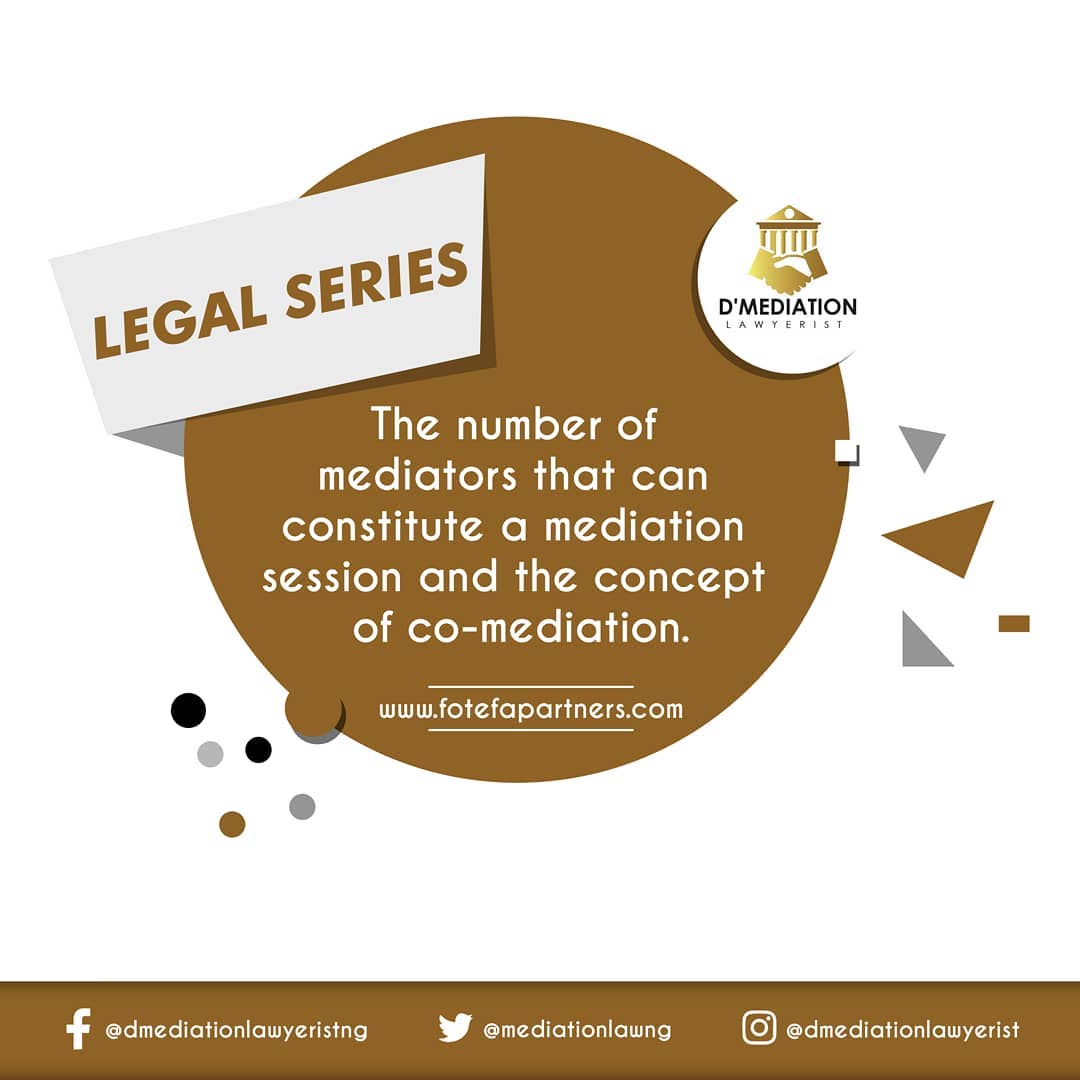Welcome to another legal series!
As you would know, Mediation is a process by which a neutral third party assists two or more people to address issues in a conflict in order to give them an opportunity to reach a mutually agreed solution. Essentially the Mediator uses a variety of skills and techniques to help the parties negotiate but does not make any decisions for them.
Now, to start this series, we need to first discuss the ramification for the appointment of more than one Mediator to constitute a Mediation Session, and generally the whole concept of co-mediation.
Occasionally, parties may wish to appoint more than one Mediator in the same session and this is called Co-Mediation. This option is of interest to parties where they require a Neutral with specific subject matter expertise relevant to the dispute such as accounting, engineering, medicine etc. Also on the parties’ request, another Mediator may be appointed to enhance the opportunity for a successful outcome.
In the existence of Co-Mediation, Mediators who are mediating together for the first time should plan to meet at least 1 hour before the session to discuss the following issues;
- Any preliminary information on the case which may have been gathered through documents and discussions with the parties or counsel;
- Potential difficulties with the upcoming Mediation and how they might be approached;
- Who, if anyone will take the lead role;
- How tasks would be divided: opening statement, explaining the Agreement to Mediate, facilitating different portions of the session;
- Individual Mediation styles; what each Mediator does well, difficulties each Mediator has experienced, areas or issues they particularly enjoy handling;
- A communication system with which to inform each other if/when a break/caucus is desired.
During the mediation session itself, there are general guidelines for opening Mediation but the following under listed deals specifically with the co-Mediation process;
- Both Mediators must introduce themselves to the parties while referring to each other in a manner agreed upon prior to the session. Both Mediators should explain some portion of how the Mediation process works and how the session would be conducted. Neither Mediator should be a silent partner. Both Mediators should attempt to relate to both parties so that a sense of trust and impartiality can be established.
- Mediators must be careful about disagreeing with each other in the presence of the parties. The Mediators’ behaviour and attitude set unspoken standards for the parties. Therefore any disagreement or expression of alternative viewpoints should be handled in a constructive and respectful manner. If signals cross and Mediators are uncertain about how to proceed, or if the co-Mediators does something unwise, call for a break and meet apart from the parties.
Between sessions with the Parties or prior to the separate session.
- Co- Mediators should meet privately to compare impressions and to determine strategies and approaches for structuring upcoming sessions with the parties. Co-Mediators should discuss what has been accomplished and what further steps are indicated. They should share their understanding of the context of the dispute and of the parties’ lives. They should also determine what they know, what they need to know and how they are going to get that information from the parties.
- Co- Mediators should analyze the issues that were generated during the joint session to determine the following;
- Areas of agreement that they can use to help build momentum towards resolution of the remaining issues;
- Areas of disagreement which the Mediators must help parties reconcile;
- Items of importance to one party but not to the other which the Mediators must explore and find ways to accommodate;
- If and when it is useful to meet separately with each party and with whom they should meet with first.
The final agreement upon settlement must be thorough, clear and succinct and should state what each party must do and when and how it must be done. Co-Mediators should share responsibility for drafting the agreement, however, co-Mediators may agree that only one of them would write the agreement.
Finally, it should be stated that Mediators are not lawyers. A Mediator must refrain from providing professional advice. Where appropriate, s/he shall recommend that parties seek outside professional advice or consider resolving their dispute through other processes.
This provision equally applies to Mediators who are themselves trained in the law. The role of an impartial Mediator should not be confused with that of a lawyer who is an advocate for the client.
Sadly all good things must come to an end and we have come to the end of our last legal series for the year!!
Kindly share what you think about the series so far. What did you learn? What do you need more clarification on? What aspects of mediation would you like us to break down for you? Share in the comments section!


